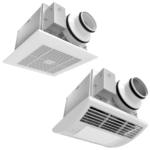The transition to an assisted living community often marks a significant change for seniors, one where attentive care and a nurturing environment can greatly impact their quality of life. Nurse services within these facilities serve as the backbone of resident care, addressing a broad spectrum of health-related needs that promote well-being and independence. In this article, we will explore the various facets that contribute to the well-being of residents through the lens of nurse services in assisted living facilities.
Understanding the Role of Nurse Services in Assisted Living
The prominence of nursing services within assisted living communities cannot be overstated. Nurses serve as caregivers but also as coordinators and communicators across the health care spectrum. They form a bridge between residents, family members, and various health care providers, ensuring continuity and comprehension in the treatment and care being provided.
These vital staff members are often responsible for monitoring vital signs, administering medications, and responding promptly to any fluctuations in a resident’s health. Their medical expertise and holistic understanding of a resident’s condition allow them to deliver personalized care while swiftly adapting to changing needs.
Nursing health services also extend to direct engagement with residents through health education and wellness programs. By empowering residents with knowledge about their health conditions and ways to manage them, nurses contribute significantly to the autonomy and confidence of the individuals under their care.
Personalized Care Plans: A Cornerstone of Resident Well-Being
Effective nursing in assisted living settings hinges on the creation and execution of personalized care plans. These dynamic documents are crafted with input from the resident, their family, and a multidisciplinary team that may include the facility’s medical director, therapists, and nutritionists, among others.
A personalized care plan is central to a resident’s daily life, dictating the specific support and medical intervention needed to maintain or improve their health. Nurses play a key role in updating these plans as residents’ conditions evolve, ensuring that each individual receives appropriate care at every stage.
Moreover, these care plans include strategies for handling emergency situations. This proactive approach enables nursing staff to deal with health crises promptly and effectively, reducing stress for residents and their families alike.
Nurturing Mental Health: The Impact of Emotional Support in Assisted Living Facilities
Mental health is a vital component of overall well-being, and assisted living facilities are increasingly recognizing the value of emotional support in their care offerings. Nurses often become confidantes and sources of comfort for residents, offering an empathetic ear and a steady presence in times of need.
Equipped with training in mental health, nursing staff can identify signs of depression, anxiety, and other psychological concerns. They coordinate with mental health professionals to integrate appropriate interventions and therapies into a resident’s care regimen.
Group activities and social programs overseen by nursing staff also contribute to mental well-being by fostering a sense of community and belonging. These interactions are important for residents to feel connected and engaged within the facility.
Emotional support extends beyond just the residents, with nurses providing guidance and reassurance to family members navigating the often-challenging emotional landscape of having a loved one in assisted living.
Integrating Technology and Innovative Practices in Nursing Care for Seniors
Innovation and technology play a growing role in enhancing the quality of care provided in assisted living communities. Nurse services adopt electronic health records for more accurate and efficient management of a resident’s medical information, resulting in more coordinated care.
Technology such as telemedicine is being increasingly utilized, enabling timely consultations with healthcare practitioners without the need for residents to leave the comfort of their facility. This saves time and also minimizes the stress associated with hospital visits.
Additionally, wearable devices and monitoring systems can aid nurses in tracking residents’ activity levels, sleep patterns, and vital signs. This real-time data collection provides insights that can lead to preemptive care interventions, reducing the risk of falls and other accidents.
Overall, nurse services are indispensable to the well-being of residents in assisted living environments. They not only deliver direct medical care but also provide emotional support and innovative solutions that are essential for maintaining and improving residents’ health. By fostering collaborative relationships with families and incorporating advanced practices into daily care routines, nursing staff ensure that seniors live their twilight years with dignity, comfort, and the highest level of independence possible.






